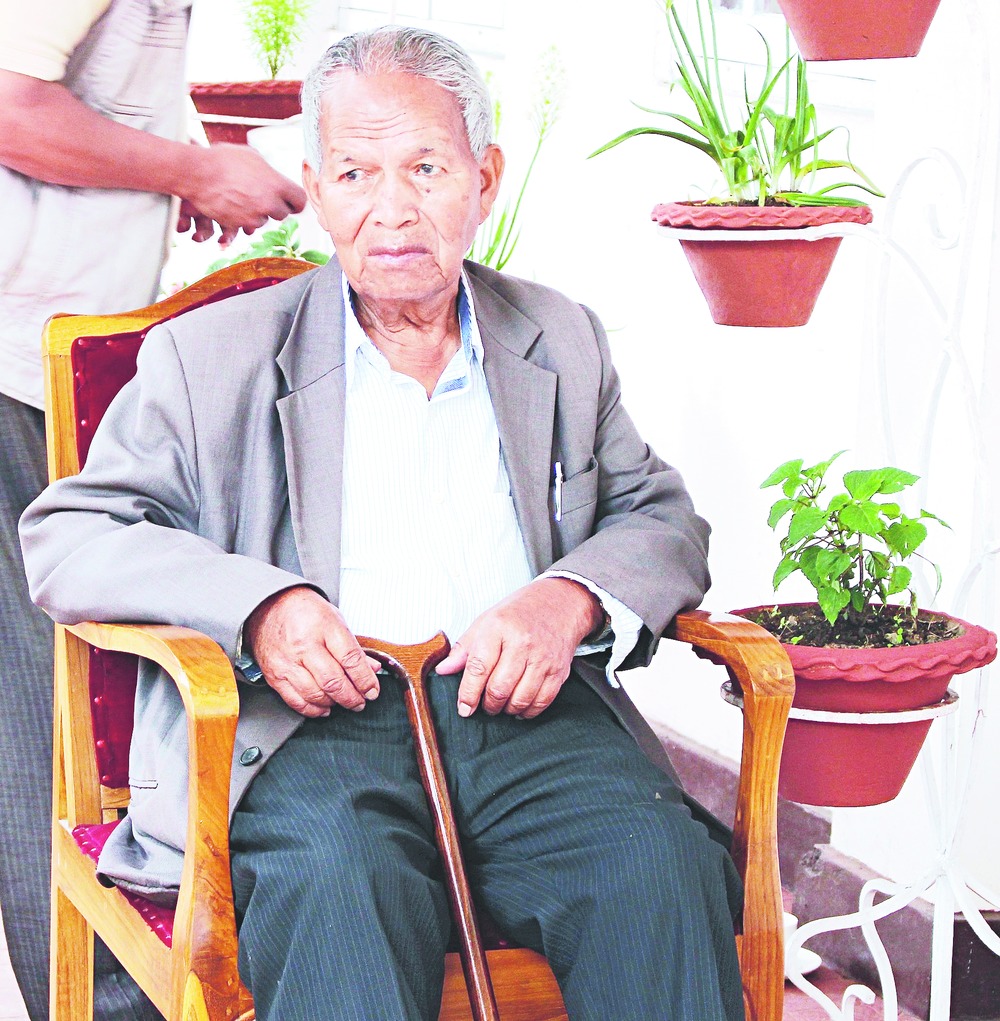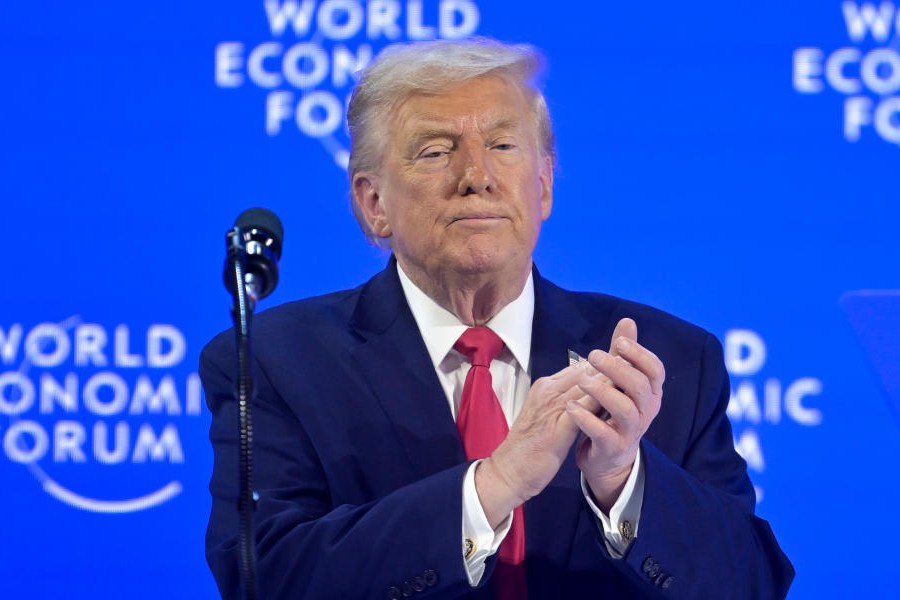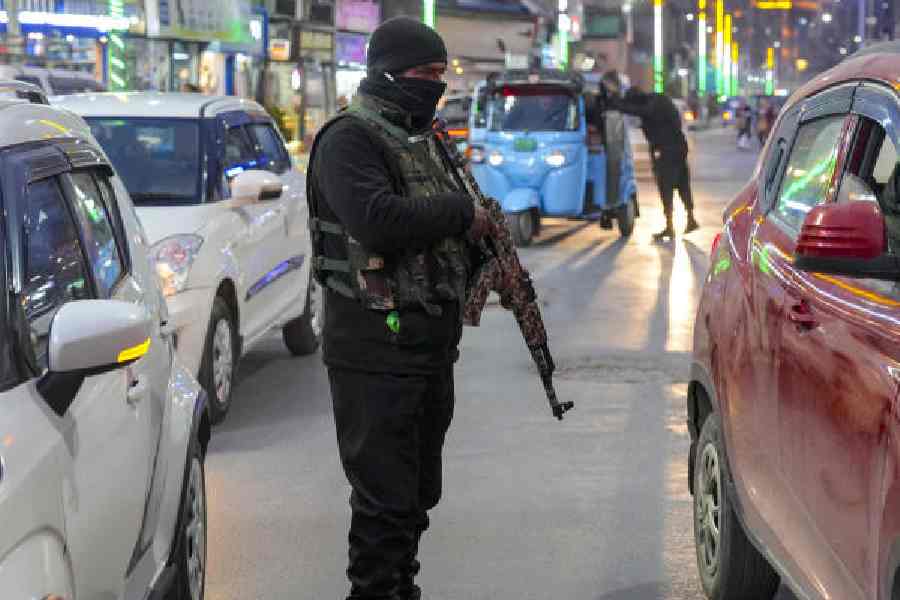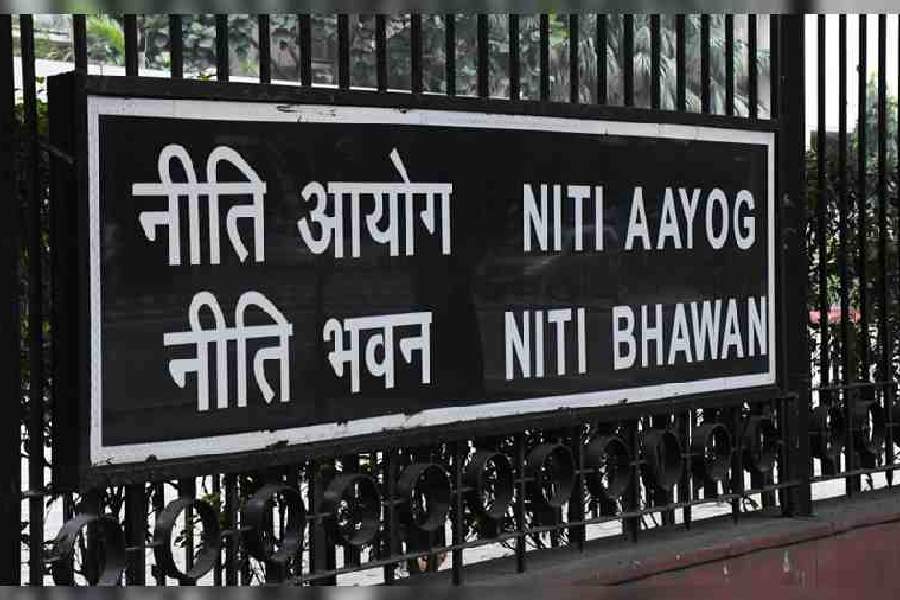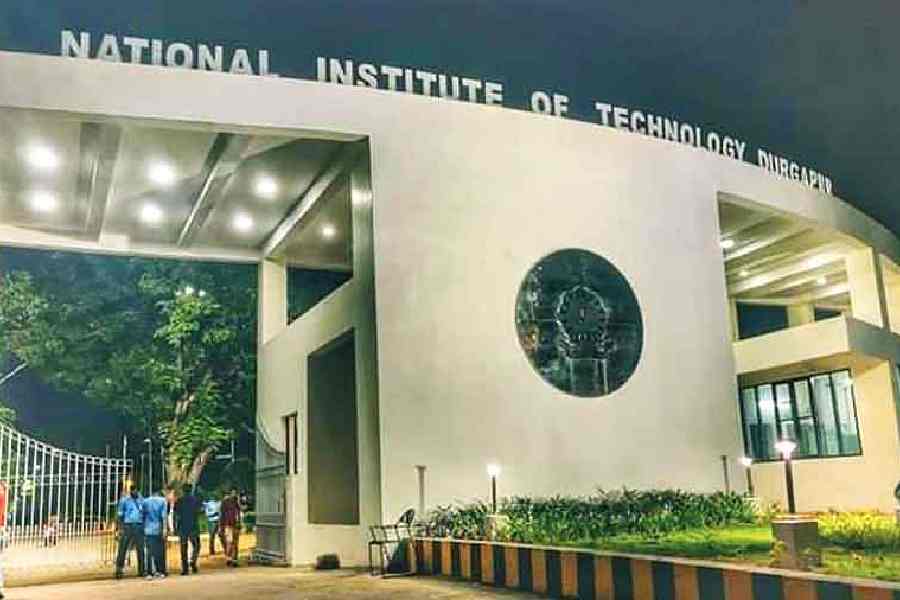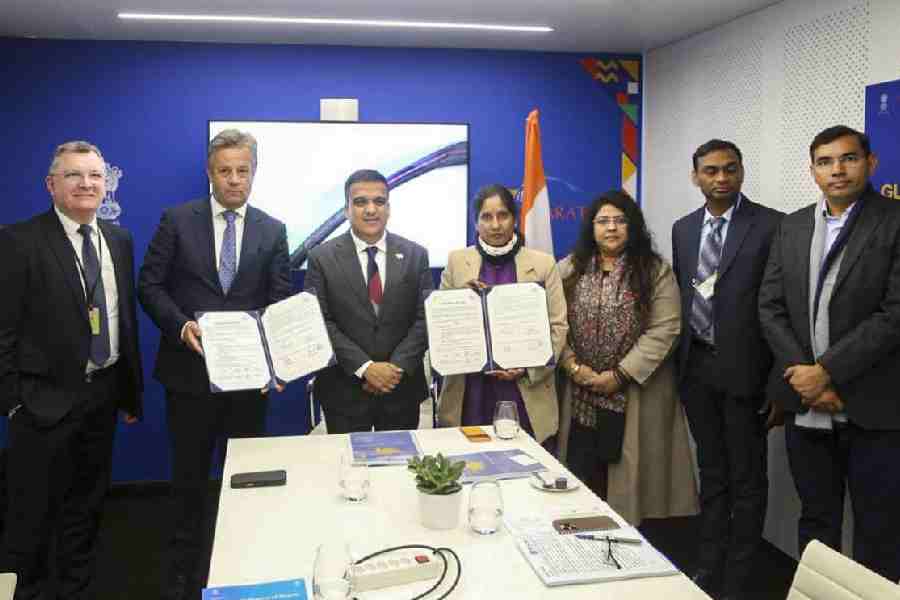
Shillong, Sept. 26: Veteran political leader and Meghalaya's longest-serving legislator, Hoping Stone Lyngdoh, who pioneered the demand for a separate Khasi-Jaintia state and the anti-uranium mining movement, breathed his last in the wee hours today.
Lyngdoh passed away at the North Eastern Indira Gandhi Regional Institute of Health and Medical Sciences (NEIGRIHMS) of septicaemia and multi-organ failure at around 1am. He was 86.
The Meghalaya government today declared a three-day state mourning in honour of the veteran legislator, who was also one of the prominent faces of the Hill State Movement. The mourning period will commence from tomorrow.
A statement from the government declared that during the period of state mourning there would be no official entertainment and the Tricolour would be flown at half-mast at all government establishments.
Lyngdoh's mortal remains will be laid to rest at his native Mawkyllei village in West Khasi Hills district with full state honours on Tuesday. Mawkyllei is around 25km from Nongstoin, the district headquarters of West Khasi Hills district. His body was taken from NEIGRIHMS to his residence at Kench's Trace here. Several political leaders, including Union minister of state for home affairs Kiren Rijiju, visited Lyngdoh's residence to pay homage to the departed soul.
Rijiju also conveyed Prime Minister Narendra Modi's condolences to Lyngdoh's bereaved family members.
On Monday, the body will be taken to Nongstoin for the people to pay homage to the departed leader. From Nongstoin, the mortal remains will be taken to Mawkyllei.
Lyngdoh represented Nongstoin constituency in the Assembly since 1962. Founder of the Hill State People's Democratic Party (HSPDP), he ventured into electoral politics in 1957 when he was elected as a member of the then United Khasi Jaintia Hills Autonomous District. In 1962, he was among the few Khasi, Jaintia and Garo leaders who made an entry into the then composite Assam Legislative Assembly.
When Meghalaya was carved out of Assam in 1972, Lyngdoh was among the 60 members of the Assembly. In 1977, he was elected to Parliament from the Shillong Lok Sabha seat.
He also carries the rare distinction in Meghalaya of winning from two constituencies, Nongstoin and Pariong, in the 1988 Assembly elections.
Lyngdoh, while having served as a cabinet minister at different intervals between the 1980s and 2000s, was deputy chief minister during the Meghalaya Progressive Alliance (MPA) government in 2008-09. Besides, he served as the chief executive member of the Khasi Hills Autonomous District Council (KHADC) from 1984-89.
In his long political career, Lyngdoh pioneered the anti-uranium mining movement in Meghalaya in the 1990s. He was also one of the most vocal leaders on the inter-state boundary dispute with Assam. Lyngdoh had always expressed regret over the arrangement and manner in which Meghalaya was carved out of Assam in 1972 without proper demarcation of the boundary and hoped to see an early solution to the bone of contention between Meghalaya and Assam, which has been lingering for decades.
The veteran politician had also initiated the demand for a separate Khasi-Jaintia state, and the issue always featured not only in the election manifesto of the HSPDP, but within the Meghalaya Assembly through debates.
In the 2013 Assembly polls, Lyngdoh won from Nongstoin constituency by a margin of over 2,000 votes. In his last days as a legislator, Lyngdoh rarely participated in the proceedings of the House. In his last public appearance, Lyngdoh had attended the first two days of the recently concluded autumn session on September 16 and 17.

